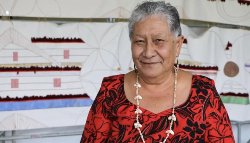Patchy progress for people with intellectual disabilities
IHC survey finds patchy progress for people with intellectual disabilities in New Zealand
A new snapshot on quality of life for people with intellectual disabilities has found many still struggling for education, good health care and above all the ability to earn money.
The IHC survey, conducted in July, attracted more than 650 online responses. The majority were from intellectually disabled people and their families. 77 people took part in focus group discussions.
The results show that about 80 percent of respondents felt people with intellectual disabilities and their families do not have enough money for food, clothing, bills and transport – let alone for going out, holidays, celebrations or paying for additional disability costs.
About three-quarters of respondents told us people with intellectual disabilities do not get the right support to enter the work force. 75 percent felt the country was stuck or going backwards in getting students into work, and 80 percent felt adults were being shut out of employment.
“These results are the first of a kind for New Zealand. They give us a new benchmark on just how unnecessarily tough life remains for many people with intellectual disabilities,” says IHC’s Director of Advocacy, Trish Grant.
Nearly half of respondents told us healthcare in New Zealand was making progress for children with intellectual disabilities, but more than half felt it was stalled or worsening for adults.
Education for adults was highlighted as a particular problem, with 74 percent saying New Zealand was stuck or the situation was getting worse. Sixty percent thought things were getting worse or unchanged in children’s education.
“Families feel worn down, and many talk about ‘battling’ and how ‘wearying’ it all is,” says Trish Grant.
“How people manage often depends on where they live, individual circumstances like wealth and connections and, too often, luck,” she says.
But there were also brighter spots in the results, with some families reporting the new individualized funding model was working for them.
IHC will always work to advocate for the rights, welfare and inclusion of all people with intellectual disabilities, but there’s a broader responsibility too.
“With the election just over a fortnight away, we keenly look forward to hearing how politicians plan to progress the gaps we have identified,” says Trish.
“New Zealand can’t keep leaving this to chance.”
ENDS


 University of Auckland: Tributes Flow For Much Loved Pacific Leader Melegalenu’u Ah Sam
University of Auckland: Tributes Flow For Much Loved Pacific Leader Melegalenu’u Ah Sam NZEI: Ministry Of Education Cuts Will Disproportionately Affect Pasifika
NZEI: Ministry Of Education Cuts Will Disproportionately Affect Pasifika Day One Hapai te Haeata: Call To Action For Young Filmmakers Against The Backdrop Of Funding Cuts
Day One Hapai te Haeata: Call To Action For Young Filmmakers Against The Backdrop Of Funding Cuts Toyota New Zealand: Three Races For Top Three To Decide TR86 Title
Toyota New Zealand: Three Races For Top Three To Decide TR86 Title Wellington City Council: Wellington Is All Action Stations For The Faultline Ultra Festival
Wellington City Council: Wellington Is All Action Stations For The Faultline Ultra Festival Melanie Allison: Local Playwright Casts A Spell Over Hamilton
Melanie Allison: Local Playwright Casts A Spell Over Hamilton